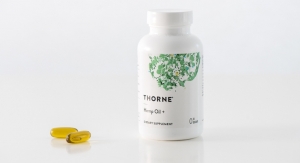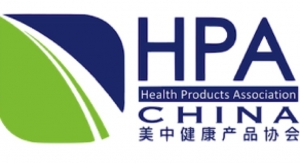By Tu T. Tran, VP of Sales & Marketing, Pharma Tech Industries09.10.18
I’m going to go out on a limb here, and propose that there’s a strong case to be made for nutritional brands selecting contract manufacturing organizations (CMOs) that have traditionally catered to the pharmaceutical sector. You may think I’m comparing apples-to-oranges, but by the time you’ve finished digesting my argument, I believe you’ll agree that I’m actually talking apples-to-apples, and that this idea makes profound (if outside-the-box) sense.
The most pressing reason for nutrition/nutraceutical brands to expand the search radius of their CMO exploration to consider legacy pharma portfolio CMOs revolves around quality control and assurance. There’s a “Quality by Design” aspect here and, as the nutrition industry has sometimes struggled with (usually undeserved) accusations of suspect quality control, why not seek out CMOs with pharma-grade QA/QC systems and relevant manufacturing equipment/lines?
The Quality Equation
A 2018 survey conducted by Nutraceuticals World indicated that more than two-thirds of companies consider quality control to be important when selecting a contract manufacturer. Clearly, this theme weighs heavily on people’s minds, and CMOs that meet the rigorous standards of the pharma sector can offer a broad selection of superior QC equipment and processes.
While currently serving as vice president of sales and marketing for Pharma Tech Industries, a pharmaceutical contract manufacturer and packager that specializes in powder-based products, my career has straddled both sides of the fence—the CMO side (Nellson and Heinz in addition to Pharma Tech) as well as the CPG branded portfolio (Nestle, Heinz). I understand firsthand the enormity of manufacturing partner selection. I know this exercise is not simply a straightforward RFQ/RFP (Request for Quote/Price) execution wherein the lowest bidder wins, but one that extends far beyond economics to revolve around critical factors encompassing stewardship, innovation, capacity, and quality.
Consider the times in which we live. In today’s era of litigious consumer counsel and social-media transparency, and immediacy, companies must work diligently to assure that their market share and consumer trust, accrued over years and decades, does not evaporate overnight. Unfortunately, organizations can all too easily imagine the damage their brands may suffer in the wake of a single quality-related incident, recall, complaint, or warning.
Companies that have closely nurtured and protected their brands over extended periods fear that once they turn manufacturing over to a CMO, this closely guarded control will be lost. They worry that this third party may come to hold greater downstream stewardship over their brands than they themselves do.
Again, this is why the CMO selection process is profoundly important, and why I believe traditional pharma providers offer an attractive and compelling alternative for nutrition and nutraceutical brands to consider as they search for a manufacturing partner.
Why do I feel that way? In short, pharma CMOs are inherently held to higher standards of operational, quality, and testing thoroughness—as required by the strict regulatory landscape of their products: Rx, OTC, medical device, etc. Out of necessity, this rigor precipitates architecture, infrastructure, design, and execution protocols that exceed respective environments in adjacent product categories outside of pharma.
The pharma landscape is governed by 21 CFR 211—the Code of Federal Regulations published by executive departments and agencies of the U.S. government. The CFR contains 50 titles—wherein Title 21 pertains to food and drugs. Part 211 (pharmaceuticals) is comparatively more rigorous, and contains regulations that are much more prescriptive than Part 110 (food). While dietary supplement regulations in Part 111 are more similar to pharmaceuticals, they are also intentionally written with “wiggle room,” loosening required controls concerning assay of ingredients and their labeling.
CMO Support
Let’s examine the following points while considering the use of legacy pharma CMOs for nutritional and nutraceutical brands.
Rigor: Pharma CMOs are accustomed to a high level of operational brand stewardship, having historically produced OTC/Rx products marketed in environments of much greater safety, cleaning, and regulatory rigor per the requirements of 21 CFR 211 (GMP regulations) and ICH Q10.
Testing: The process and product testing and validation carried out by pharma CMOs is second to none. We have the ability to perform USP compendial methods in addition to customer supplied methods. All USP analytical testing methodology is verified onsite prior to use, and all customer-provided methodology is transferred per internally established procedures aligned with ICH Q2(R1) and USP <1225> requirements. Validation of manufacturing processes is aligned with FDA Process Validation guidance.
Isolation: Pharma CMOs isolate lines, suites, and rooms for cleaning, contamination control, and privacy. A line clearance is performed between every lot, and a major cleaning is performed to prevent any cross-contamination between different products. Facility designs meet requirements of 21 CFR 211.42.
Clean processing environment: Conditions that mitigate quality exposure are key to ensuring upstream product integrity and downstream brand equity for pharma CMOs. Moreover, we perform environmental monitoring for viable organisms in production environments—holding to USP purified water microbial limits for potable water and to strict limits for air sampling.
Climate controlled environment: Per the requirements of 21 CFR 211.142, pharma CMOs control climate within temperature and humidity specs that facilitate product quality and shelf life.
Cross-industry relevant capabilities: Legacy pharma CMOs are fully capable of producing nutritional food/supplement applications using existing equipment assets, including: 1) Processing: ribbon blending, automatic cartoning/packaging, metal detection; 2) Packaging: automated and weight-controlled powder filling into pouches (sticks to sachets) and bottles of every size and shape; 3) Product format: free flowing powder (supplements, protein, digestive) and solid (effervescent tablets, capsules); 4) Vertical integration: bottle blow molding and component injection molding; 5) Flexibility: nimble, upside capacity and entrepreneurial CAPEX investment tolerance; 6) Raw material handling: full spectrum of scope from bags and drums, to super sacks, rail cars, and silos.
Conclusion
Nutritional brands seeking production partners should consider expanding their search radius to include legacy pharma portfolio CMOs for their nutritional product applications needs. Traditional pharma CMOs operate quality systems to the rigorous standards of pharma manufacturing.
About the author: Tu T. Tran is vice president of sales & marketing for Pharma Tech Industries (www.pharma-tech.com). He came to PTI with more than 20 years of business development experience in a career spanning engineering, manufacturing, sales and marketing, including a strong background in nutraceuticals.
The most pressing reason for nutrition/nutraceutical brands to expand the search radius of their CMO exploration to consider legacy pharma portfolio CMOs revolves around quality control and assurance. There’s a “Quality by Design” aspect here and, as the nutrition industry has sometimes struggled with (usually undeserved) accusations of suspect quality control, why not seek out CMOs with pharma-grade QA/QC systems and relevant manufacturing equipment/lines?
The Quality Equation
A 2018 survey conducted by Nutraceuticals World indicated that more than two-thirds of companies consider quality control to be important when selecting a contract manufacturer. Clearly, this theme weighs heavily on people’s minds, and CMOs that meet the rigorous standards of the pharma sector can offer a broad selection of superior QC equipment and processes.
While currently serving as vice president of sales and marketing for Pharma Tech Industries, a pharmaceutical contract manufacturer and packager that specializes in powder-based products, my career has straddled both sides of the fence—the CMO side (Nellson and Heinz in addition to Pharma Tech) as well as the CPG branded portfolio (Nestle, Heinz). I understand firsthand the enormity of manufacturing partner selection. I know this exercise is not simply a straightforward RFQ/RFP (Request for Quote/Price) execution wherein the lowest bidder wins, but one that extends far beyond economics to revolve around critical factors encompassing stewardship, innovation, capacity, and quality.
Consider the times in which we live. In today’s era of litigious consumer counsel and social-media transparency, and immediacy, companies must work diligently to assure that their market share and consumer trust, accrued over years and decades, does not evaporate overnight. Unfortunately, organizations can all too easily imagine the damage their brands may suffer in the wake of a single quality-related incident, recall, complaint, or warning.
Companies that have closely nurtured and protected their brands over extended periods fear that once they turn manufacturing over to a CMO, this closely guarded control will be lost. They worry that this third party may come to hold greater downstream stewardship over their brands than they themselves do.
Again, this is why the CMO selection process is profoundly important, and why I believe traditional pharma providers offer an attractive and compelling alternative for nutrition and nutraceutical brands to consider as they search for a manufacturing partner.
Why do I feel that way? In short, pharma CMOs are inherently held to higher standards of operational, quality, and testing thoroughness—as required by the strict regulatory landscape of their products: Rx, OTC, medical device, etc. Out of necessity, this rigor precipitates architecture, infrastructure, design, and execution protocols that exceed respective environments in adjacent product categories outside of pharma.
The pharma landscape is governed by 21 CFR 211—the Code of Federal Regulations published by executive departments and agencies of the U.S. government. The CFR contains 50 titles—wherein Title 21 pertains to food and drugs. Part 211 (pharmaceuticals) is comparatively more rigorous, and contains regulations that are much more prescriptive than Part 110 (food). While dietary supplement regulations in Part 111 are more similar to pharmaceuticals, they are also intentionally written with “wiggle room,” loosening required controls concerning assay of ingredients and their labeling.
CMO Support
Let’s examine the following points while considering the use of legacy pharma CMOs for nutritional and nutraceutical brands.
Rigor: Pharma CMOs are accustomed to a high level of operational brand stewardship, having historically produced OTC/Rx products marketed in environments of much greater safety, cleaning, and regulatory rigor per the requirements of 21 CFR 211 (GMP regulations) and ICH Q10.
Testing: The process and product testing and validation carried out by pharma CMOs is second to none. We have the ability to perform USP compendial methods in addition to customer supplied methods. All USP analytical testing methodology is verified onsite prior to use, and all customer-provided methodology is transferred per internally established procedures aligned with ICH Q2(R1) and USP <1225> requirements. Validation of manufacturing processes is aligned with FDA Process Validation guidance.
Isolation: Pharma CMOs isolate lines, suites, and rooms for cleaning, contamination control, and privacy. A line clearance is performed between every lot, and a major cleaning is performed to prevent any cross-contamination between different products. Facility designs meet requirements of 21 CFR 211.42.
Clean processing environment: Conditions that mitigate quality exposure are key to ensuring upstream product integrity and downstream brand equity for pharma CMOs. Moreover, we perform environmental monitoring for viable organisms in production environments—holding to USP purified water microbial limits for potable water and to strict limits for air sampling.
Climate controlled environment: Per the requirements of 21 CFR 211.142, pharma CMOs control climate within temperature and humidity specs that facilitate product quality and shelf life.
Cross-industry relevant capabilities: Legacy pharma CMOs are fully capable of producing nutritional food/supplement applications using existing equipment assets, including: 1) Processing: ribbon blending, automatic cartoning/packaging, metal detection; 2) Packaging: automated and weight-controlled powder filling into pouches (sticks to sachets) and bottles of every size and shape; 3) Product format: free flowing powder (supplements, protein, digestive) and solid (effervescent tablets, capsules); 4) Vertical integration: bottle blow molding and component injection molding; 5) Flexibility: nimble, upside capacity and entrepreneurial CAPEX investment tolerance; 6) Raw material handling: full spectrum of scope from bags and drums, to super sacks, rail cars, and silos.
Conclusion
Nutritional brands seeking production partners should consider expanding their search radius to include legacy pharma portfolio CMOs for their nutritional product applications needs. Traditional pharma CMOs operate quality systems to the rigorous standards of pharma manufacturing.
About the author: Tu T. Tran is vice president of sales & marketing for Pharma Tech Industries (www.pharma-tech.com). He came to PTI with more than 20 years of business development experience in a career spanning engineering, manufacturing, sales and marketing, including a strong background in nutraceuticals.




















